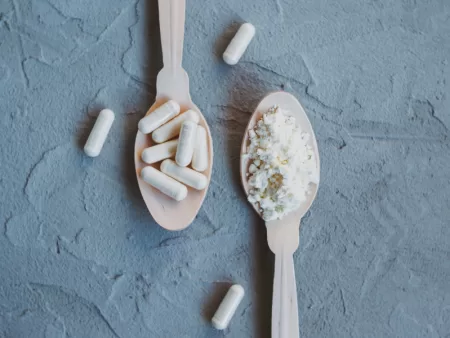
“Could the secret to a strong heart be hidden in an unexpected place?”This question opens the door to some intriguing health knowledge.
In our body’s functions, testosterone acts not just as a symbol of strength, but also as a potential key player in cardiovascular health. This hormone’s journey from muscle building to heart protection is a story that is both enlightening and important.
Discovering Testosterone
Testosterone isn’t just for men. It’s an important hormone for everyone, helping our bodies in many ways. Men produce most of it in their testes, and women have it too, made in their ovaries and adrenal glands, but in smaller amounts.
What Does Testosterone Do?
- Muscles and Strength: Testosterone helps in building muscles. It’s like a natural booster that helps our muscles grow bigger and stronger, important for both men and women.
- Bone Health: It also keeps our bones tough and dense. This is really important as we get older because it helps prevent bones from breaking easily.
- Body Changes in Teens: During puberty, especially in boys, testosterone causes changes like a deeper voice, growth of facial and body hair, and other signs of becoming a man.
- Fertility and Moods: This hormone is essential for making sperm and maintaining sexual interest. It also affects how we feel, like being energetic, happy, or sad.
- Heart Health: Testosterone also plays a part in keeping our heart healthy. It helps in managing the levels of fat in our blood and keeping blood vessels healthy.
- Brain Function: Surprisingly, it even has a role in how our brain works, influencing things like memory and concentration.
Starting in our 30s, everyone’s testosterone levels slowly drop a little each year. This is normal, but it’s important to understand because it affects our health in various ways, like energy levels, muscle strength, and even our moods. That’s why it’s a hot topic for scientists and doctors.
Testosterone’s Impact on Heart Health
Testosterone isn’t just about muscle building or male traits. It’s also crucial for keeping our heart in good shape. This hormone plays several roles that affect our heart’s health in ways that scientists are still studying.
Key Roles of Testosterone in Heart Health:
- Making the Heart Muscle Stronger: Testosterone helps keep the heart muscle strong. It can pump blood better, keeping our body healthy and active.
- Controlling Fat in Blood: It also helps control the amount of fat, like cholesterol, in our blood. Too much fat can lead to heart problems, so keeping it in check is important.
- Improving Blood Flow: Testosterone is believed to help our blood flow smoothly. Good blood flow means every part of our body gets the oxygen and nutrients it needs.
- Keeping Arteries Healthy: There’s some thought that testosterone can keep our arteries flexible. Flexible arteries are good for blood flow and overall heart health.
- Helping with Blood Pressure: Some studies suggest that testosterone might help keep blood pressure at a healthy level, though research is still ongoing.
- Affecting Heart Beat: Testosterone may also play a part in how regularly and well our heart beats, which is important for overall heart function.
- Link to Heart Conditions: Too much or too little testosterone can be a risk for cardiovascular disease. Understanding this balance is key.
Deeper Understanding of Testosterone’s Impact on Heart Health
Testosterone, often highlighted for its prominent role in male physiology, offers a range of less commonly discussed benefits for heart health. This section dives into these intricate and significant aspects, bringing forth unique insights.
Lesser-Known Heart Health Benefits of Testosterone:
- Cardiac Muscle Recovery: Testosterone aids in the recovery and repair processes of cardiac muscles, particularly after stress or injury, which is crucial for long-term heart health and resilience.
- Modulating Heart Rate Variability: Emerging studies indicate that testosterone might influence heart rate variability, a measure of the heart’s ability to respond to various stressors, potentially enhancing cardiac adaptability.
- Supporting Capillary Health: In addition to large blood vessels, testosterone plays a role in maintaining the health of smaller blood vessels or capillaries, ensuring efficient microcirculation in the heart muscle.
- Regulating Stress Response: Testosterone can modulate the body’s response to stress, including cardiovascular reactions, thereby potentially reducing the risk of stress-induced heart complications.
- Contributing to Electrolyte Balance: It influences the balance of key electrolytes, like potassium and sodium, which are crucial for optimal heart function and preventing arrhythmias.
- Interplay with Heart Growth Factors: Testosterone interacts with various growth factors that are essential for heart muscle development and repair, offering a protective effect on cardiac tissues.
- Oxidative Stress Reduction: The hormone has been linked to reducing oxidative stress in cardiac cells, a factor that, when uncontrolled, can lead to heart disease.
- Enhancing Angiogenesis: Testosterone can promote the process of angiogenesis – the formation of new blood vessels – within the heart, which is beneficial especially after heart damage or stress.
- Influencing Autonomic Nervous System: It plays a role in the regulation of the autonomic nervous system, which controls heart rate and blood pressure, highlighting its indirect but significant impact on cardiac health.
- Protecting Against Heart Tissue Fibrosis: Testosterone may help in preventing fibrosis, or scarring, of heart tissue, a condition that can lead to diminished heart function.
Testosterone for Heart Health
One of the critical roles of testosterone in heart health is its contribution to enhancing blood vessel functionality. By promoting vasodilation, which is the widening of blood vessels, testosterone facilitates smoother blood flow. This reduces the pressure and workload on the heart, ensuring efficient circulation and delivery of essential nutrients and oxygen throughout the body.
Besides aiding blood circulation, testosterone plays a significant role in cholesterol management. It affects the balance between LDL (bad cholesterol) and HDL (good cholesterol), crucial for heart health. Proper regulation of cholesterol helps in preventing the accumulation of fats in artery walls, known as atherosclerosis, which is a major risk factor for heart attacks and strokes.
Testosterone’s influence extends to maintaining the health of the heart’s muscles. It enhances the strength and functionality of these muscles, leading to more effective blood pumping. A healthy heart muscle is vital for preventing conditions like heart failure. Moreover, testosterone’s anti-inflammatory properties within the cardiovascular system contribute significantly to reducing the risk of heart diseases and improving overall heart function.
Additionally, testosterone’s role in promoting physical fitness and energy levels indirectly benefits heart health. By fostering increased stamina and physical capabilities, testosterone encourages a lifestyle that supports cardiovascular health through regular exercise and physical activity.
Cardiovascular risks with high testosterone levels
Elevated testosterone levels have been linked to an increased risk of serious cardiovascular events. This not only encompasses heart attacks and strokes but extends to conditions like coronary artery disease, where narrowed or blocked arteries reduce blood flow to the heart. Particularly vulnerable are older men or individuals with pre-existing cardiovascular conditions. In such cases, abnormally high testosterone levels, whether due to hormonal imbalance or external supplementation, can exacerbate these risks.
Beyond the direct risk of major heart events, high testosterone levels are associated with other cardiovascular complications. For instance, they can lead to increased blood pressure, known as hypertension, which is a major contributing factor to heart disease. Additionally, there’s a concern that too much testosterone might disrupt normal heart rhythms, resulting in arrhythmias that can have long-term effects on heart health.
Moreover, there’s growing evidence suggesting that excessive testosterone could contribute to arterial stiffness. This condition, characterized by less flexible arteries, impedes blood flow and can lead to a range of cardiovascular issues. It’s a significant concern as it increases the overall workload on the heart, potentially leading to heart failure or other cardiac problems.
These risks are particularly important to consider for individuals undergoing testosterone therapy. Such therapies, especially when leading to high testosterone levels, necessitate careful medical monitoring and regular cardiovascular assessments. This is crucial to detect any early signs of heart problems and to manage the therapy to mitigate these risks.This extensive look at the cardiovascular risks associated with high testosterone levels emphasizes the need for cautious management of hormone levels, particularly in individuals with pre-existing heart conditions or those undergoing hormone therapy.
Testosterone replacement therapy
TRT’s primary purpose is to alleviate symptoms linked to low testosterone, such as:
- diminished libido
- loss of muscle mass
- fatigue
- and mood swings.
Beyond these, TRT has shown benefits in improving bone density, potentially guarding against osteoporosis, and enhancing overall body composition by reducing fat mass and increasing muscle mass. It’s also associated with positive effects on mental health, such as alleviating depression and anxiety symptoms and boosting cognitive functions like memory and concentration.
However, the relationship between TRT and cardiovascular health is intricate and multi-faceted. While there are instances where TRT has been associated with improving cardiac function and lowering heart disease risk factors, other studies highlight a potential increase in cardiovascular events, particularly in older men or those with existing heart conditions. This complexity necessitates a highly individualized approach to TRT, especially in cardiovascular risk assessment and management.
Furthermore, TRT can lead to several side effects, which can vary in severity. Minor effects include skin conditions like acne and increased body hair, while more serious concerns involve an elevated red blood cell count, which can increase the risk of clotting and cardiovascular issues. Liver health impacts and changes in cholesterol profiles are also important considerations. A notable concern surrounding TRT is its potential effect on prostate health; regular monitoring is advised due to the debated link between TRT and increased risks of prostate cancer or exacerbation of BPH symptoms.
Regarding fertility, TRT’s impact is significant. The therapy can suppress natural testosterone production and reduce sperm count, affecting fertility. Therefore, men considering future fatherhood should discuss fertility preservation with their healthcare provider before commencing TRT.
Considering TRT’s broad impact, it demands a comprehensive and personalized treatment strategy. This involves regular medical assessments, lifestyle evaluations, and ongoing adjustments to the therapy based on individual responses and health changes.
Naturally Support Testosterone Levels
Adopting a diet that supports testosterone production is essential. Incorporating foods rich in key nutrients like zinc and vitamin D is crucial. Foods such as shellfish, especially oysters, are high in zinc, while fatty fish like salmon are excellent sources of vitamin D. Other beneficial foods include eggs, which provide a balance of fats and proteins, and leafy greens like spinach, which are rich in magnesium, another testosterone-boosting mineral.
Engaging in specific types of exercise can also positively impact testosterone levels. Strength training and resistance exercises are particularly effective. However, it’s important to balance intense workouts with adequate rest and recovery, as overtraining can negatively affect testosterone levels.
Adequate sleep is a cornerstone of hormonal health. Disruptions in sleep patterns can significantly lower testosterone levels. Adults should aim for 7-9 hours of quality sleep each night, establishing a consistent sleep schedule to improve sleep quality.
Managing stress is equally important. High stress levels lead to increased cortisol, which can negatively affect testosterone.
Limiting or avoiding certain substances is beneficial for testosterone levels. Reducing the intake of alcohol and avoiding smoking can have a positive impact.
Exploring natural supplements can also be considered. Supplements like fenugreek, ashwagandha, and ginger have been studied for their potential benefits in supporting testosterone levels. However, it’s important to approach supplementation with caution and ideally under the guidance of a healthcare professional.
Conclusion
The influence of testosterone goes far beyond typical ideas. As an essential hormone, it not only shapes physical characteristics, but also plays a key role in maintaining the integrity of the cardiovascular system. It skillfully manages important functions such as preparing the heart muscle, regulating cholesterol levels and ensuring effective blood circulation. The revelation here is the relationship between testosterone and overall health – a balance that is essential for physical, emotional and cardiac prosperity. This insight makes us realize the importance of a holistic approach to health, where diet, lifestyle and smart medical interventions intertwine to nourish and protect this vital hormone, thereby supporting our overall well-being and heart health.
FAQs
Testosterone is a key architect of our body’s framework, crucial for robust bones, a resilient heart, and maintaining our emotional equilibrium.
While central to male development, testosterone also underpins vital health aspects in women, such as energy regulation and physiological balance.
Indeed, it acts as a guardian of heart health, playing a role in strengthening cardiac muscles, balancing cholesterol, and promoting smooth blood circulation.
With time, our body’s testosterone narrative evolves, gradually decreasing post-thirties, which can subtly alter our vitality and overall well-being.
Our everyday lifestyle is a powerful scriptwriter for testosterone levels – diet, physical activity, managing stress, and sleep quality are the key chapters in this narrative.







